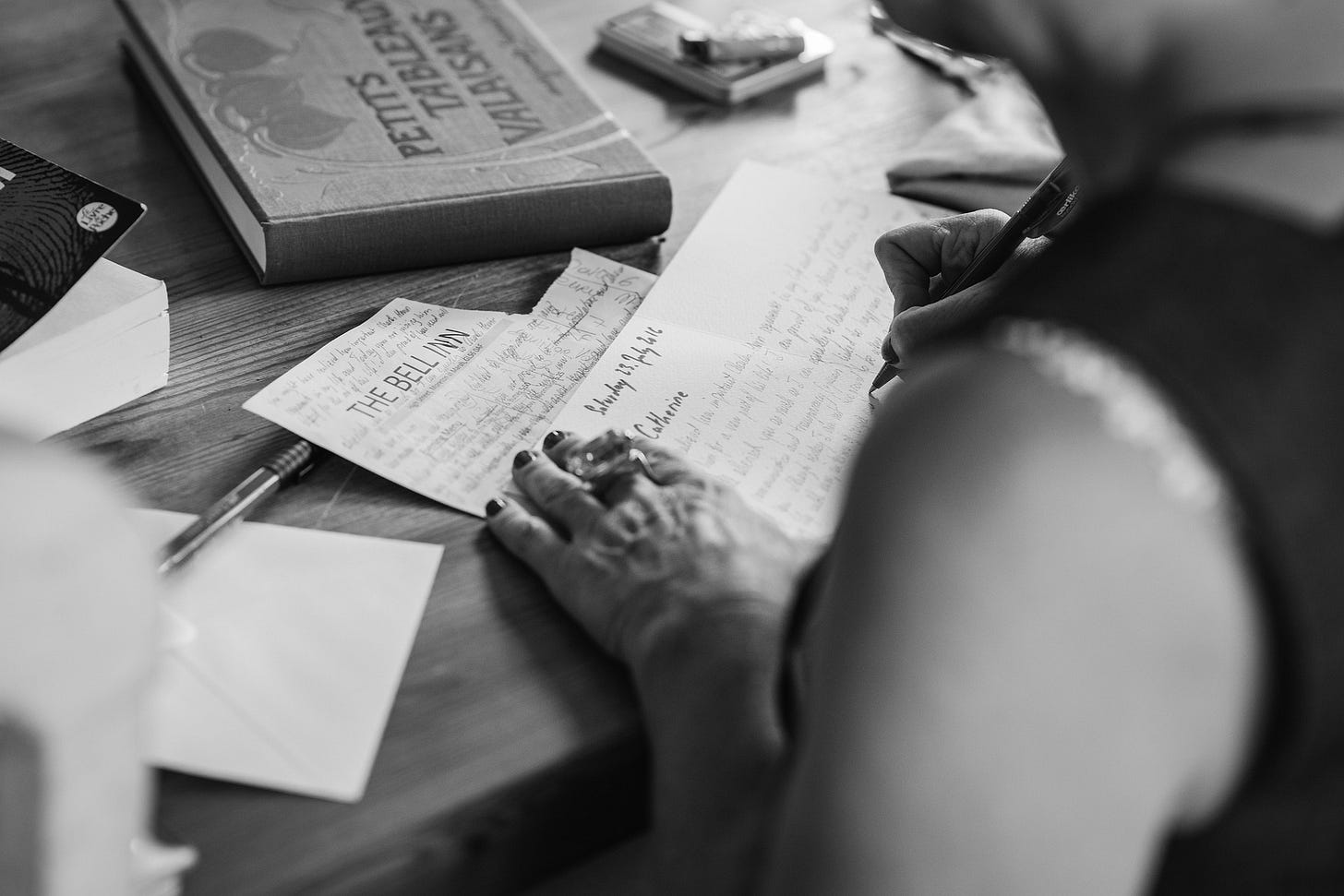How Do I Take Notes and Remember What I Read, Watch, and Listen
Keep always something with you to take notes
My notebooks have been essential for my writing and for keeping my notes in one place.
I always carry one with me wherever I go.
It’s not like I’m against technology, but when you open your notebook, you automatically unplug. You pause for a moment when you daily face the influx of information being constantly bombarded into your mind.
And you can catch up on things that matter.
In my notebooks, I keep all the notes and ideas I come across in books, podcasts, and videos.
Or just observing and noticing life around me when I walk, or by the window at the coffee shop.
The whole purpose of my notebook is to record and organize any gems you find in your everyday life for later use in your writing.
If you can’t remember what you read, watched, or listened to, then you’re wasting your time
What’s the point of reading a book, listening to a podcast, watching videos, or having a great idea if you don’t write it down?
Our minds weren’t for storing ideas or insights, so trusting your mind to remember things is a one-way ticket to oblivion.
You might as well spend your time doomscrolling.
In this article, I will share my approach to taking notes from books; this method can also be applied to videos and podcasts.
Here’s how I take notes:
Capture notes wherever you are
Take the example of a book.
When I read a book, I aim to capture all that resonates and stands out.
There’s a white space on the front and back covers of the book. As I read the book, I take relevant notes on what I learn and highlight anything important.
I will then create a table of contents of my own with these important takeaways and add the page number where I took them.
The idea here is to go back after reading the book, and quickly access the important bits I found the first time I read it.
Then later, I can add them to my notebooks once I’ve gone through distilling the information.
How to distill notes, and when should you take notes when reading
When I finish reading the book, the next step for me is to distill the information I took from reading it.
On the back cover of the book, I take relevant notes and references from the book that I want to remember later. If it is something I want to add to my writing or something I can get back to often, I will write it in one of my notebooks.
You can add the date you started reading the book on the front cover and the date you finished the book on the back cover. This will help you get a perspective of where you were at that part of your life when you read it for the first time.
It takes practice to distill what’s more relevant, and leaving the underlying to the end of reading a page helps a lot. Otherwise, you’ll fall into the trap of highlighting every sentence.
While watching videos or podcasts, you can pause and write notes, but once you gain practice, you will notice that you’ll be able to take notes while listening.
Keep your notes somewhere you trust, and always be able to return to them
Nowadays, most of us choose a digital app or software to keep our notes.
I use my notebooks and a commonplace book for the relevant stuff from what I read, like quotes, ideas, and references.
As Ryan Holiday explains, a “Commonplace book is a central resource or depository for ideas, quotes, anecdotes, observations, and information you come across during your life and for didactic purposes”.
In this notebook, I keep all the notes and ideas I come from reading books, watching videos, or listening to podcasts. I’ve been doing it every day since I started it, and it’s been the foundation of my current writing process.
The whole purpose of a book like this one is to record and organize any gems you find in your everyday life for later use in your writing.
Throughout history, there have been examples of great men and women who have kept these books. From Marcus Aurelius and his Meditations, Thomas Jefferson, Napoleon, Bill Gates, and Austin Kleon.
All of them see the importance of having a place where you write things you come across throughout your everyday life.
There’s no right or wrong with a commonplace book — it’s your book and you use it how you want it.
Thank you. See you at the next one!





Taking notes is really something I'm not good at! I'll save interesting quotes and sometimes a few main ideas in my Notion app but nothing like how you're doing it. I also don't usually remember everything that I've read. I find it difficult because often I'm listening to an audiobook while driving so it's not easy to take notes that way.